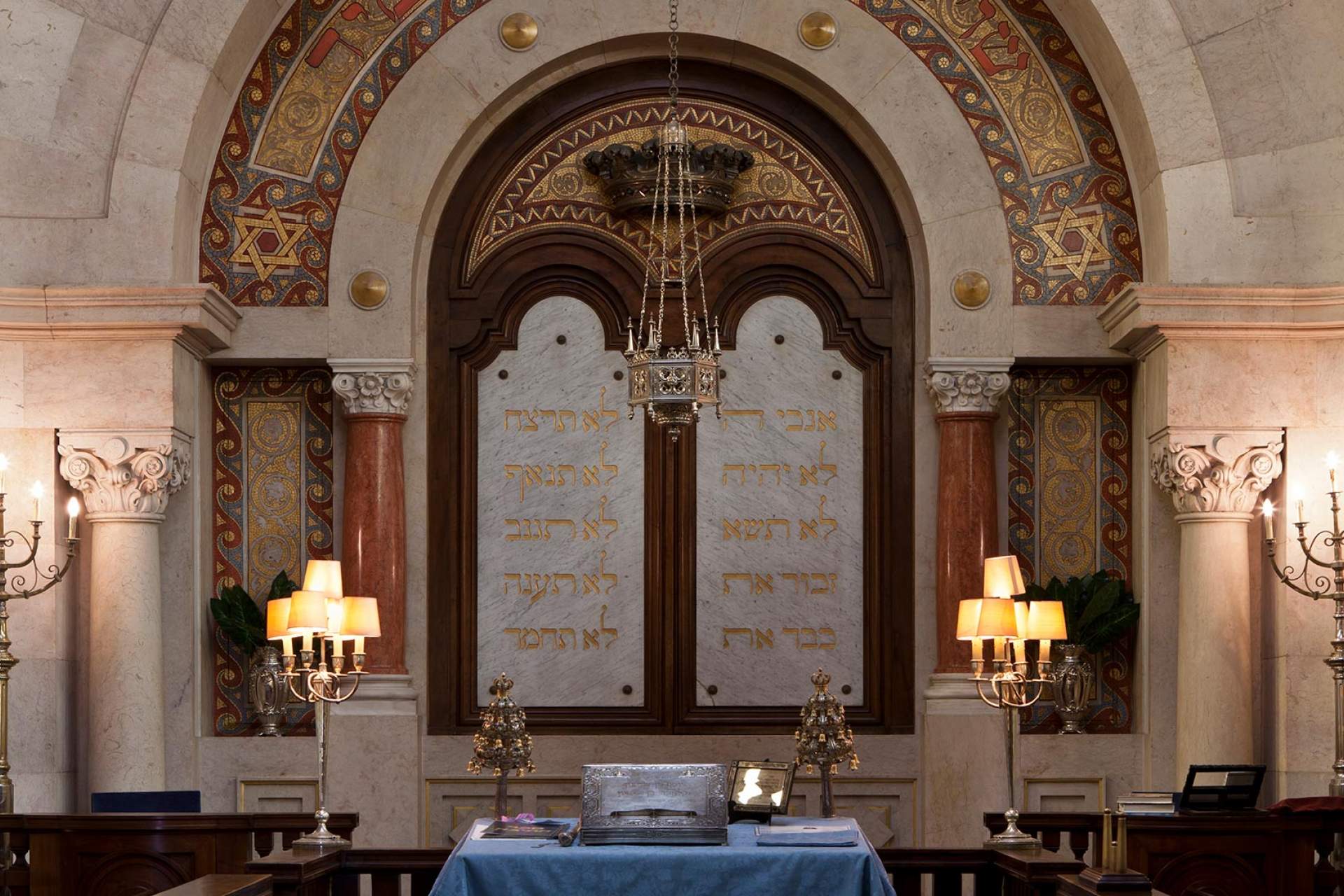
The Sephardic Jewish heritage in Portugal has significantly marked the country's development throughout the ages. Sephardic, known as the Jewish communities of the Iberian Peninsula, contributed to the settlement of the territory conquered from the Moors in the country's foundation.
Protected by the Portuguese monarchs although belonging to a different religion, the Jews enjoyed freedom of worship and education.
These communities of businessmen, men of science and of letters, philosophers, doctors and astronomers made great contributions to the country.
In medicine Moisés Navarro, the King D. Pedro I's doctor, Ibn Yahia ha Zaken ben Salomon, the King D. Fernando I's doctor, José Zarco and Ephraim ben Sancho, doctors of King D. Afonso V and Mestre Nacim, the first specialist in eye diseases stood out.
Other personalities that stood out during the Portuguese Discoveries: Pedro Nunes, great mathematician; José Vizinho or Vecinho, who was also the King D. João II's doctor and also perfected the mariner's astrolabe, a device for measuring the position of the stars; Abraão Zacuto, whose Almanach Perpetuum containing the solar declination boards were widely used in deep-sea navigation; Jehuda Cresques, known for his expertise in building compasses; Mestre Jácomo, who had been the cartographer of King of Aragon.
In 1496, the Edict of Expulsion of the Jews from Portugal obliged them to convert to Catholicism and become New Christians. Many left the country, but many others remained and secretly kept their faith.
Big names in medicine such as Amato Lusitano (João Rodrigues de Castelo Branco), Garcia de Orta, Rodrigo de Castro and Zacuto Lusitano fled from Portugal, and settled in Thessaloniki, Goa, Venice and Amsterdam, respectively.
Time slowly erased the marks of the Jewish presence in the life and memory of the Portuguese. Remains of the Jewish presence across the country, from architecture to the urban planning of cities, towns and villages, place names (Rua da Judiaria, Beco do Judeu, Calçada do Mestre, Travessa da Sinagoga), as well as language and customs, culture, and mentalities have survived. Trancoso, Belmonte, Guarda or Castelo de Vide are some of the places where you can still see symbolic markings and inscriptions carved into the homes of old Jewish quarters.
During Second World War, Portugal welcomed many thousands of Jews escaping Nazi persecution. In 1940, the Portuguese consul in Bordeaux, Aristides de Sousa Mendes, disobeyed the Portuguese government's orders and saved tens of thousands of lives by granting visas to Jewish refugees. In 1966, Yad Vashem, Holocaust Memorial, on behalf of the Israeli State, awarded him the title of “Righteous Among the Nations”.
The Jewish community have existed legally in Portugal since 1912.
Currently, the community has very diverse origins and cultures: Judaism essentially of Central Europe and Moroccan origin with about 200 years of presence, concentrated mainly in Lisbon. Judaism of Crypto-Judaism origin, in Belmonte, but also in Oporto and Lisbon, dating back to the Jewish presence before the expulsion in some cases. A more recent Judaism - in Lisbon, Oporto and Algarve - driven by globalisation and political and economic openness in recent decades from different continents, especially, Latin America.
In Northern Portugal, Jewish museums in Oporto and Carção and in Bragança, the Memorial and the Sephardic Culture Interpretation Centre attest to their presence.
In the centre of the country, we invite you to get to know the traces of Jewish presence in the municipalities of Guarda, Trancoso, Tomar, Castelo Branco, Vila Cova à Coelheira, Alenquer or Torres Vedras.
In the region of Lisbon, discover the reason why by thousands of refugees from the armed conflicts that ravaged Europe in the 20th century choose Cascais and Estoril, by visiting the Memorial Space of the Exiles. In Lisbon, you can also visit the locations within the Fernandina walls near Nova Street, where the Jewish neighbourhoods were located in the 13th and 14th centuries. The Large Jewish quarter and Alfama Small Jewish quarter both were located in front of the port and shipyards.
Further south, in the Alentejo region, visit the Jewish quarters of Évora, Elvas and Castelo de Vide. In Algarve, the cities of Lagos, Faro and Tavira were the cities that most attracted Jews during the Portuguese Discoveries.
You can find synagogues designed for worship in Oporto, Belmonte and Lisbon.
Jewish families settled in the middle of the Atlantic Ocean, in Azores in the 15th century and more recently in the 19th century, particularly in the islands of S. Miguel, Terceira and Faial. At the end of the 19th century, the Jewish presence went into decline and most of the Jews living in the islands immigrated to Lisbon.
Madeira also attracted some Jews throughout the 15th and 16th centuries, who mainly settled in Funchal, but there is only memory of these in the records of Inquisition, as new Christians.
The Jewish heritage is part of the Portuguese identity. We invite you to discover a number of towns, cities and villages that combine history, religious culture and rich heritage in memories evoking the Jewish presence in Portugal.
See here for accommodation units in Portugal that facilitate welcoming Jewish’s religion and culture, and restaurants and stores with kosher certification.
No results were found matching your search.

Close
Search results for:
No results were found matching your search.
Information available soon.


